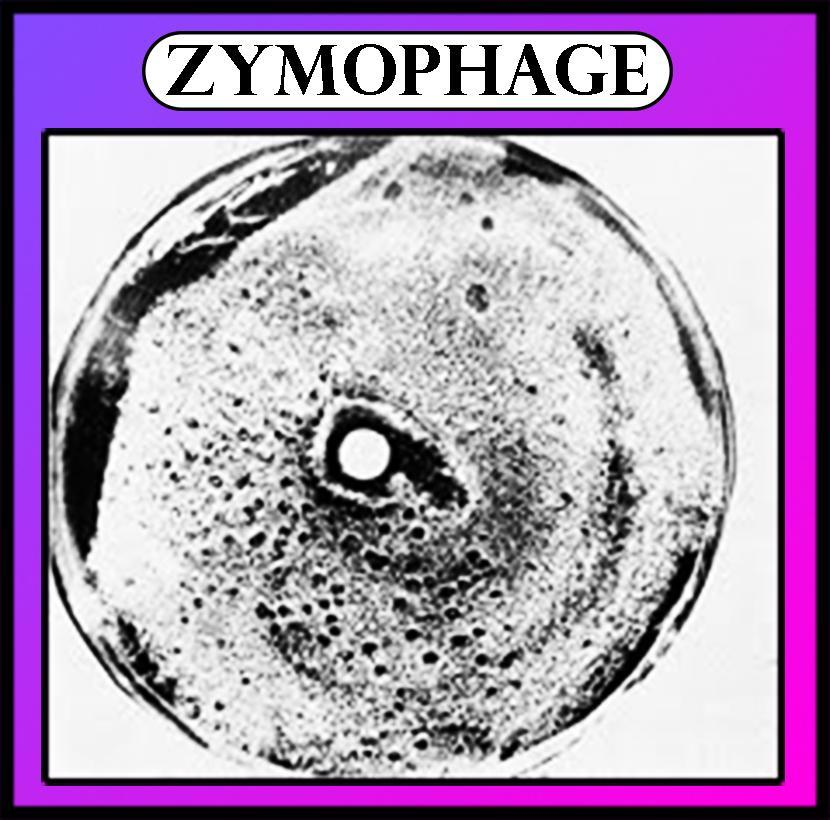
Zymophage is a parasite of
(a) Bacteria
(b) Algae
(c) Yeast
(d) None of the above
Answer
590.7k+ views
Hint: Zymophage lives as a parasite on eukaryotic, single-celled microorganisms. These hosts are a member of the kingdom fungi. Along with algae, these are the only organisms to have motile male and female gametes.
Complete answer:
Zymophage is a parasite of yeast. An organism that lives on or in a host organism and derives its nutrition from or at the expense of its host is called a ‘parasite.’ Viruses live as parasites on several organisms. Based on the host cell they infect, viruses are classified into:
- Zoophages: Viral parasites on animals.
- Phytophages: Viruses as parasites on plants.
- Phycophages: Algae serves as the host of this type of viruses.
- Mycophages: Fungi are the host for this type of viruses.
- Zymophages: Viral parasites on yeast.
- Bacteriophages: Viruses as parasites on bacteria.
- Cyanophages: Cyanobacteria serves as the host of this type of viruses.
- Coliphages: E. coli are the host for this type of viruses.

So, the correct answer is, ‘Yeast.’
Additional Information:
- The literal meaning of bacteriophage is bacteria eater. Phages have been used as an alternative to antibiotics for a while now.
- They are seen as a possible therapy against multidrug-resistant strains of many bacteria.
Note:
- A bacteriophage is also simply known as phage. They are composed of proteins that encapsulate DNA or RNA genome. Phages replicate within the bacterium after injecting the genome into its cytoplasm.
- Phycodnaviridae is a family of large double-stranded DNA viruses which infect freshwater or marine eukaryotic algae. Most of the genera under this family enter the host cell by endocytosis and then replicate in its nucleus.
Complete answer:
Zymophage is a parasite of yeast. An organism that lives on or in a host organism and derives its nutrition from or at the expense of its host is called a ‘parasite.’ Viruses live as parasites on several organisms. Based on the host cell they infect, viruses are classified into:
- Zoophages: Viral parasites on animals.
- Phytophages: Viruses as parasites on plants.
- Phycophages: Algae serves as the host of this type of viruses.
- Mycophages: Fungi are the host for this type of viruses.
- Zymophages: Viral parasites on yeast.
- Bacteriophages: Viruses as parasites on bacteria.
- Cyanophages: Cyanobacteria serves as the host of this type of viruses.
- Coliphages: E. coli are the host for this type of viruses.

So, the correct answer is, ‘Yeast.’
Additional Information:
- The literal meaning of bacteriophage is bacteria eater. Phages have been used as an alternative to antibiotics for a while now.
- They are seen as a possible therapy against multidrug-resistant strains of many bacteria.
Note:
- A bacteriophage is also simply known as phage. They are composed of proteins that encapsulate DNA or RNA genome. Phages replicate within the bacterium after injecting the genome into its cytoplasm.
- Phycodnaviridae is a family of large double-stranded DNA viruses which infect freshwater or marine eukaryotic algae. Most of the genera under this family enter the host cell by endocytosis and then replicate in its nucleus.
Recently Updated Pages
Master Class 11 Computer Science: Engaging Questions & Answers for Success

Master Class 11 Business Studies: Engaging Questions & Answers for Success

Master Class 11 Economics: Engaging Questions & Answers for Success

Master Class 11 English: Engaging Questions & Answers for Success

Master Class 11 Maths: Engaging Questions & Answers for Success

Master Class 11 Biology: Engaging Questions & Answers for Success

Trending doubts
One Metric ton is equal to kg A 10000 B 1000 C 100 class 11 physics CBSE

There are 720 permutations of the digits 1 2 3 4 5 class 11 maths CBSE

Discuss the various forms of bacteria class 11 biology CBSE

Draw a diagram of a plant cell and label at least eight class 11 biology CBSE

State the laws of reflection of light

Explain zero factorial class 11 maths CBSE




